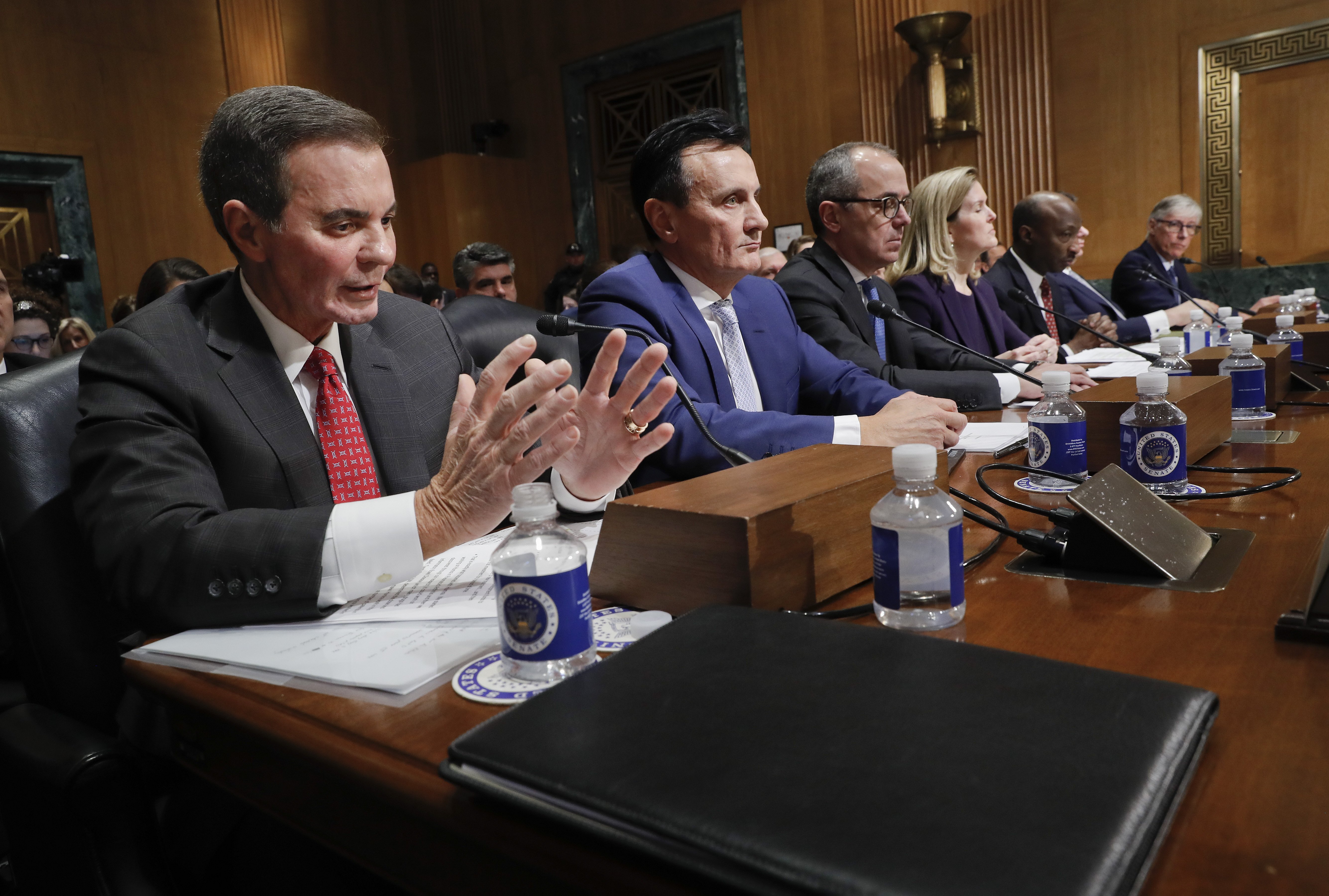Side Effects
Drugmakers say consumers, not middlemen, should get rebates
Feb. 26, 2019
WASHINGTON — The senior executives of seven major pharmaceutical companies said they could lower drug prices if the Trump administration adopts a proposed rule that would eliminate rebates paid by the manufacturers to middlemen in the drug supply chain, primarily pharmacy benefit managers.
During a hearing before the Senate Finance Committee, Richard Gonzalez, chairman and chief executive officer of AbbVie, said while they want to see the final form of the rule, “we are supportive of taking the discount to the patient at the point of sale.”
Kenneth Frazier, chairman and CEO of Merck, said, "We must ensure that patients get the benefit of the large rebates and discounts that manufacturers are paying to PBMs and insurance companies." Albert Bourla, CEO of Pfizer, said, “It is very clear we do not keep a single dollar from these rebates.”
While senior executives aimed much of their fire at pharmacy benefit managers (PBMs), they acknowledged that high prices also are caused by the billions of dollars they funnel into research for new drugs aimed at curing a variety of disease such as cancer.
Pharmacy benefit managers insist on rebates from the manufacturers in return for including their drugs on pre-approved health care plans. Critics charge the pharmacy benefit managers pocket the rebates rather than passing them on to the consumer.
In a statement before the hearing, Pharmaceutical Care Management Association President and CEO J.C. Scott, said, "Drugmakers alone have the power to set prices, and, contrary to the narrative promoted by some, their pricing strategies are unrelated to the rebates they negotiate with pharmacy benefit managers (PBMs)."
Nearly two months ago, Health and Human Services Secretary Alex Azar proposed a rule that would enable drug manufacturers to pass rebates and other discounts directly to consumers. He called the money going to PBMs "a hidden system of kickbacks to middlemen." The rebates represent 26 to 30 percent of a drug’s list price, Azar said.
The HHS proposal would specifically remove "safe harbor" protections from the Anti-Kickback Statute for rebates paid by manufacturers to PBMs and Medicaid managed care organizations.
Drug Look Up | Use our database to see if you're paying too much for your prescription drugs
The stakes are huge. Jennifer Taubert, head of Janssen Pharmaceutical Companies of Johnson & Johnson, said, "In 2018, we provided approximately $21 billion in discounts and rebates on our medicines — an overall reduction from list price of 47 percent." Yet consumers did not benefit from those huge price breaks.
The billions made by PBMs has been the topic of a year-long investigation by The Dispatch, which has helped spur sweeping changes in Ohio.
Just last week, Ohio Attorney General David Yost said he would seek nearly $16 million in prescription drug costs he said pharmacy benefit manager OptumRX overcharged the Ohio Bureau of Workers' Compensation.
Yet committee Democrats such as Sen. Ron Wyden of Oregon complained that the pharmaceutical companies themselves are largely to blame for skyrocketing drug prices. Wyden sharply asked the manufacturers why they charge American consumers more for the same drug than they sell in Europe.
“Do you make a profit on the drugs that you sell in Germany or in France?” Wyden asked Gonzalez, who acknowledged, “Yes we do.”
“If you can turn a profit in a country with dramatically lower prices, you can do the same thing in the United States,” Wyden said. “How is that not gouging the American consumer with high prices?”
“The reality is prices vary dramatically around the world,” Gonzalez said. “The U.S. has some of the highest prices in the world.”
But he added, “Our system is built around a variety of pricing around the world but … that overall system supports our research and development model. If the market the size of the U.S. were to collapse to the lower end of that pricing model, then I can just tell you AbbVie would not be able to invest the level of R& D it invests today.”
Sen. Sherrod Brown, D-Ohio, a member of the panel, complained that “taxpayers subsidize your research,” and “you continue to raise drug list prices on them.”
“The median income of a person on Medicare is $26,000 a year; the average annual cost for a single specialty medication was more than $52,000 in 2015,” Brown said. “Americans cannot afford to pay for prescription drugs that cost more money than they make in a year.”
